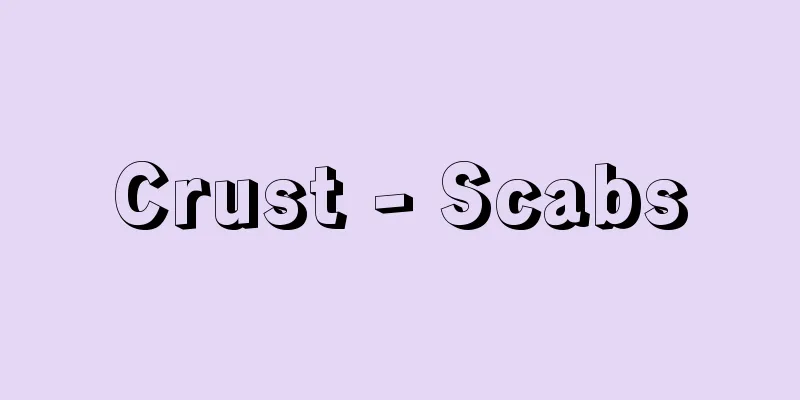Modern state - Kindai Kokka (English spelling) modern state

|
Generally speaking, it refers to the nation-states that emerged in modern society and the modern world after the English Revolution and the French Revolution in the 17th and 18th centuries. In this sense, modern capitalist countries, socialist countries, and developing countries can be broadly considered to be included in the category. In any case, these modern states are very different in terms of their political principles and methods of government administration from Greek city-states, medieval feudal states, or absolutist states before the civil revolution. The political principles of modern nation states include that sovereignty resides with the people (popular sovereignty), politics is run by laws enacted by a council (parliament) made up of representatives elected by the people (rule of law), the rights and freedoms of the people are guaranteed to the maximum extent possible (human rights protection), and this requires the establishment of a democratic political system (representative government and separation of powers), etc. Such logic and political ideas of modern nation states were systematized by Hobbes, Harrington, Locke, Montesquieu, Rousseau, and others. Modern states, unlike Greek city-states or medieval feudal states, are unified nations that are extremely large in both size (territory) and population. As seen in England at the end of the absolute monarchy, within this political community, a production organization (capitalism) based on the division of labor had already been widely formed, and the power of merchants and industrialists (citizens) could no longer be ignored. Therefore, in such political communities, the control of power by the monarch or a small number of aristocrats was no longer relevant and outdated. In order to gather the energy of the people and achieve a rapid development of productivity, it became necessary to establish a free and stable political administration in which the majority of the people participated in politics and were governed and ruled based on a common law. In this way, it can be seen that the people's demand for freedom and equality, the ideas and systems of national sovereignty, the rule of law, and parliamentary democracy, and even the very establishment of the modern state, were closely related to the development of a new economic organization (capitalism). In the early stages of the formation of modern nation states, however, people other than the landlord class and the upper bourgeoisie were not allowed to vote, and so the guarantee of the rights and freedoms of the people that modern nation states touted was not necessarily sufficient. This problem was gradually improved as universal suffrage was implemented in various countries during the 19th and 20th centuries, in line with the growing demand for political participation by the middle and lower classes and the working class, which began to grow rapidly after the Industrial Revolution. In modern nation states that started out based on a capitalist economy, the development of capitalism gave rise to various economic, labor, and social problems, such as depression, unemployment, and poverty. From around the end of the 19th century, and especially after the Great Depression, nations have sought to resolve these problems by working to improve social security and social welfare, and implementing welfare, economic, and labor policies, including fiscal and monetary policies. Thus, modern states have come to be characterized as being based on the so-called "mixed economy" in which the government is actively involved in the running of the economy and promotes economic growth and stability, and such states are nowadays called by various names, such as welfare state, administrative state, modified capitalist state, and state monopoly capitalist state. Other modern nations include socialist nations that were founded on the principles of socialism, which are different from capitalism, and many developing countries that combine the principles of both capitalism and socialism. As such, there are currently about 200 nation-states with different political and economic systems coexisting on this planet, and most of them aim to establish the rights and freedoms of their citizens and provide a stable life. In this regard, the guidelines for the political management of all countries can be found in the history and ideological principles of humanity, which has striven to establish "freedom and equality" and "democracy and peace" from the establishment of modern nations to the present day. [Hiroshi Tanaka] "The State and the Individual" by Hiroshi Tanaka (1990, Iwanami Shoten) Source: Shogakukan Encyclopedia Nipponica About Encyclopedia Nipponica Information | Legend |
|
一般には、17、18世紀のイギリス革命やフランス革命以後の近代社会・近代世界に登場した国民(民族)国家をいう。その意味では、現代資本主義国家、社会主義国家、発展途上国なども広くその範疇(はんちゅう)に含めて考えてよいであろう。いずれにせよ、この近代国家は、ギリシアの都市国家、中世の封建国家、あるいは市民革命前の絶対主義国家とは、政治原理や政治運営の方法においてその性格を大きく異にする。 近代国家の政治原理としては、主権は国民にある(国民主権主義)、政治は国民が選出した代表者からなる会議体(議会)の制定した法律によって運営される(法の支配)、国民の権利・自由は最大限に保障され(人権保障)、そのためには民主的政治制度(代議制・権力分立)の確立を必要とする、などがあげられる。このような近代国家の論理や政治思想は、ホッブズ、ハリントン、ロック、モンテスキュー、ルソーなどによって体系化されたものである。 近代国家は、ギリシアの都市国家や中世の封建国家とは異なり、その規模(領土)においても人口の数においてもきわめて巨大な統一国家である。また絶対王政末期のイングランドにみられるように、この政治共同体内部ではすでに分業による生産組織(資本主義)が広範に形成され、いまや商工業者(市民)の力は無視できない状況にまでなっている。したがって、こうした政治共同体においては、もはや君主や少数の貴族による力の支配は時代遅れのものとなり、不適合なものであった。国民のエネルギーを結集し、生産力の飛躍的発展を図るためには、国民の多数が政治に参加し、共通の法律を基礎にして統治し統治される自由で安定した政治運営の確立が必要となった。このようにみるとき、国民の自由や平等の確立要求、国民主権主義、法の支配、議会制民主主義の思想や制度、いや近代国家の成立そのものさえが、新しい経済組織(資本主義)の発展と密接な関係にあったことがわかる。 ところで、近代国家形成の初期には、地主階級や上層ブルジョアジー以外の人々は参政権を認められていなかったから、近代国家の標榜(ひょうぼう)する国民の権利・自由の保障はかならずしも十分なものとはいえなかった。この問題は、産業革命後、急速に増大し始めた中・小市民層や労働者階級による政治参加の要求が高まるにつれて、19世紀から20世紀の間(かん)に各国において普通選挙制が実施されるなかで、しだいに改善されていった。また資本主義経済を基礎にして出発した近代国家においては、その後、資本主義の発展によって、恐慌、失業、貧困などのさまざまな経済・労働・社会問題が発生した。この問題については、19世紀末ごろからとくに世界大恐慌以後、国家が社会保障や社会福祉の充実に努め、財政・金融政策などをはじめとする福祉・経済・労働政策を実施することによって、その解決策を図っている。こうして、現代の国家は、政府が経済の運行に積極的に関与し経済成長と経済の安定を図るいわゆる「混合経済」を基調とする性格をもつものとなり、このような国家は、今日では、福祉国家、行政国家、修正資本主義国家、国家独占資本主義国家などのさまざまな名称でよばれている。 そのほか現代の国家には、資本主義とは異なる社会主義の原理に基づいて建設された社会主義国家や、資本主義と社会主義の双方の原理を組み合わせたような多数の発展途上国もある。このように現在この地球上には、政治・経済体制を異にする約200か国の国民国家が共存しているが、そのほとんどは、国民の権利・自由の確立と生活の安定を努力目標に掲げている。その際すべての国々の政治運営の指針となるものは、近代国家成立期から現代に至るまで「自由と平等」「民主主義と平和」の確立を求めて努力してきた人類の歴史と思想原理のなかにみいだすことができよう。 [田中 浩] 『田中浩著『国家と個人』(1990・岩波書店)』 出典 小学館 日本大百科全書(ニッポニカ)日本大百科全書(ニッポニカ)について 情報 | 凡例 |
>>: Modern Port - Kindai Kowan
Recommend
Japanese encephalitis
It is an acute infectious disease caused by the J...
Under What Stars?
...At the time, he insisted on his own eloquent s...
Guzman de Alfarache (English spelling)
…In 1608, he traveled to Mexico with his mistress...
Toy Fireworks - Omocha Hanabi
These are small, easy-to-use fireworks that childr...
Edmondson, T.
…The term "ticket" was first used in th...
Tagore
Poet and novelist from Bengal, India. His name is ...
Tazawako Line
The name of the East Japan Railway Company's ...
The Tale of the High Priests of Japan
Biographies of Japanese monks. Written by Shiban. ...
chalcedony
...It is semi-transparent and is mainly mined in ...
《Exorcist》
...The classic, proper horror film after Psycho w...
Tamayo - Gyokudai
〘 noun 〙 The fee for entertaining a prostitute or ...
Commentary on the Rebirth of the Pure Land
...The Pure Land doctrine and faith that guided t...
center of mass
…[Minoru Nakaoka] (2) Center of gravity in mechan...
Dry lubrication
…Most oil pumps use a forced oil supply system, w...
Ibn Ḥayyān (English spelling) Ibn Hayyan
…In philology, the Amāli by al-Qālī (901-967) is ...









